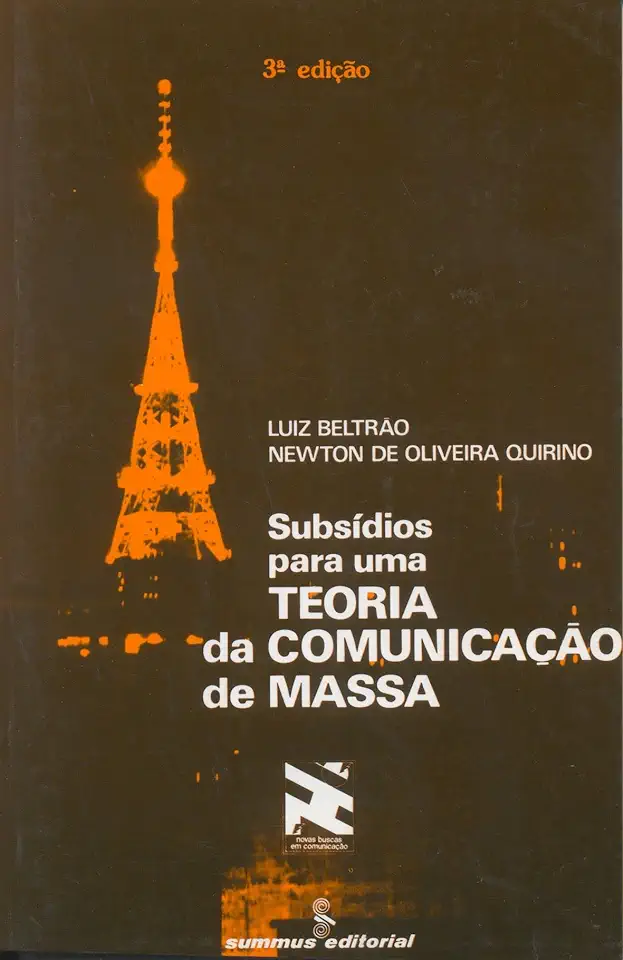
Mass Communication Theory: Subsidies for a Theory of Mass Communication - Luiz Beltrão and Newton de Oliveira Quirino
Mass Communication Theory: Subsidies for a Theory of Mass Communication
Introduction
In the book "Mass Communication Theory: Subsidies for a Theory of Mass Communication", authors Luiz Beltrão and Newton de Oliveira Quirino present a comprehensive and thought-provoking exploration of the field of mass communication. Drawing upon a wide range of theoretical perspectives and empirical studies, the authors provide a critical analysis of the current state of mass communication theory and offer valuable insights into the future of the field.
Theoretical Foundations
Beltrão and Quirino begin by establishing the theoretical foundations of mass communication theory. They discuss the various definitions of mass communication, trace its historical development, and identify the key concepts and theories that have shaped the field. This comprehensive overview provides readers with a solid understanding of the theoretical underpinnings of mass communication and lays the groundwork for the subsequent chapters.
Theories of Mass Communication
The authors then delve into a detailed examination of the major theories of mass communication. They critically assess the strengths and weaknesses of each theory, highlighting its contributions to the field and identifying areas where further research is needed. The theories covered include:
- Theories of Media Effects: This section examines the various theories that attempt to explain how the media influence individuals and society. The authors discuss the hypodermic needle theory, the two-step flow theory, the cultivation theory, and the agenda-setting theory, among others.
- Theories of Media Production: This section focuses on the processes and structures involved in the production of mass media content. The authors discuss the gatekeeping theory, the spiral of silence theory, and the political economy of communication, among others.
- Theories of Media Reception: This section explores how audiences receive and interpret media messages. The authors discuss the uses and gratifications theory, the selective exposure theory, and the reception theory, among others.
Critical Perspectives on Mass Communication
Beltrão and Quirino also provide a critical analysis of mass communication theory, challenging some of the traditional assumptions and approaches in the field. They discuss the limitations of the dominant paradigms, the need for greater diversity and inclusion, and the importance of considering the social and political context of mass communication. This critical perspective encourages readers to think critically about the role of mass communication in society and to question the taken-for-granted assumptions that often shape the field.
Future Directions for Mass Communication Theory
In the final chapter, the authors look to the future of mass communication theory. They identify emerging trends and challenges, and suggest new directions for research and theory development. This forward-looking perspective provides readers with a glimpse into the future of the field and encourages them to contribute to its ongoing evolution.
Conclusion
"Mass Communication Theory: Subsidies for a Theory of Mass Communication" is a comprehensive and thought-provoking exploration of the field of mass communication. Beltrão and Quirino provide a critical analysis of the current state of the field, offer valuable insights into the future of mass communication theory, and encourage readers to think critically about the role of mass communication in society. This book is a must-read for scholars, students, and practitioners of mass communication, as well as anyone interested in understanding the complex and ever-changing world of mass media.
Enjoyed the summary? Discover all the details and take your reading to the next level — [click here to view the book on Amazon!]